Quercus e Glandibus, also known as Quercus Glandium Spiritus, is a homeopathic remedy prepared from the spirit distilled from tincture of acorn kernels.
It was initially utilized by Rademacher for chronic spleen affections and spleen dropsy.
This remedy is renowned for its ability to counteract the effects of alcohol, relieve symptoms of vertigo and deafness, and diminish cravings for alcoholic beverages.
Additionally, it is indicated for dropsy, liver affections, gout, and old malarial cases with flatulence.
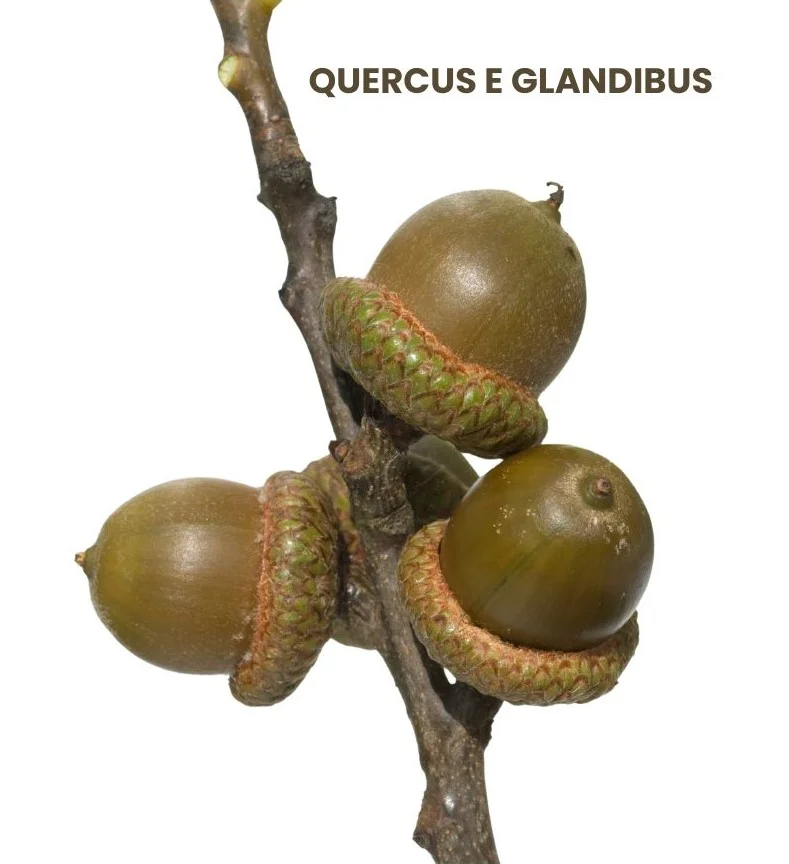
Table of Contents
ToggleSOURCE INFORMATION
Scientific Classification
- Kingdom: Plantae
- Order: Fagales
- Family: Fagaceae
- Genus: Quercus
- Species: Quercus glandium
Origin
- Quercus e Glandibus is derived from the acorn kernels of the Quercus glandium species, which is native to Europe and Asia.
- Rademacher first used it for chronic spleen affections and spleen dropsy, and its effectiveness has since been recognized in various conditions.
Historical Facts
- The historical use of Quercus e Glandibus dates back to Rademacher’s initial application for chronic spleen affections.
- Indigenous peoples of Europe and Asia have also traditionally used acorns and oak bark for medicinal purposes, reflecting the remedy’s historical significance.
DRUG PATHOGENESIS
- Effective in chronic spleen affections and spleen dropsy.
- Acts as an antidote to the effects of alcohol, reducing cravings for alcoholic beverages.
- Relieves symptoms of vertigo, deafness, and noises in the head.
- Addresses dropsy, liver affections, gout, and old malarial cases with flatulence.
KEY CHARACTERISTICS
- Counters alcohol effects and reduces cravings.
- Relieves vertigo, deafness, and head noises.
- Addresses spleen affections, dropsy, liver issues, gout, and old malarial cases with flatulence.
MODALITIES
- Temporary diarrhea may occur initially, but it usually subsides with continued use.
RELATIONSHIP WITH OTHER DRUGS
- Comparable to Angelica, Ceanothus, Lachesis, Natrum muriaticum, and Helianthus for various indications.
DOSE
- Recommended dosage ranges from ten drops to a teaspoonful of the distilled spirit three to four times a day.
Frequently Asked Questions
Q: What is Quercus e Glandibus and how is it used?
A: Quercus e Glandibus, or Quercus Glandium Spiritus, is a spirit distilled from tincture of acorn kernels.
It was first used by Rademacher for chronic spleen affections and spleen dropsy.
It is known to antidote the effects of alcohol and is used to treat conditions like vertigo, deafness, liver affections, gout, and flatulence.
Q: What are the key uses of Quercus e Glandibus?
A: Quercus e Glandibus is primarily used for chronic spleen affections and dropsy, liver affections, gout, old malarial cases, and to counter the craving for alcoholics.
It can also help with vertigo, deafness, and noises in the head.
Q: How does Quercus e Glandibus compare to other remedies?
A: Quercus e Glandibus can be compared to Angelica, Ceanothus, Lachesis, Natrum muriaticum, and Helianthus in terms of its effects on various organs and conditions.
Angelica, for example, also helps reduce the craving for liquor and treats dyspepsia and nervous headache.
Q: What is the recommended dosage of Quercus e Glandibus?
A: The recommended dosage of Quercus e Glandibus is ten drops to a teaspoonful of the distilled spirit three to four times a day.
It may cause temporary diarrhea when first used.
Additionally, Quercus can be used in trituration of the acorn 3x for splenic cases, flatulence, old malaria, and alcoholic history.
Q: Are there any side effects or reactions associated with Quercus e Glandibus?
A: Temporary diarrhea may occur initially when using Quercus e Glandibus.
However, this is often a passing effect, and the remedy has curative effects on various conditions.
Always consult with a healthcare professional before starting any new treatment.
Meaning of Difficult Words
- Spleen affections: Refers to conditions or disorders affecting the spleen, such as enlargement, inflammation, or other pathological changes in the organ.
- Spleen dropsy: Also known as splenomegaly, it is the abnormal enlargement of the spleen due to various causes, often resulting in symptoms such as abdominal discomfort, early satiety, and anemia.
- Vertigo: A sensation of spinning or dizziness, often described as feeling off-balance, as if the surrounding environment is moving or spinning when it is not.
- Deafness: Partial or complete loss of hearing, which may be temporary or permanent and can affect one or both ears.
- Noises in the head: Refers to tinnitus, a condition characterized by the perception of ringing, buzzing, humming, or other sounds in the ears or head when there is no external sound source present.
- Cravings: Strong desires or urges for a particular substance or activity, such as alcohol in the case of Quercus e Glandibus, indicating a psychological or physiological dependence or addiction.
- Dropsy: An outdated term for edema, the abnormal accumulation of fluid in the body’s tissues, leading to swelling and bloating, often seen in conditions like heart failure, liver disease, or kidney disorders.
- Flatulence: The presence of excess gas in the digestive tract, which can cause bloating, belching, and discomfort, often associated with conditions like indigestion or irritable bowel syndrome.

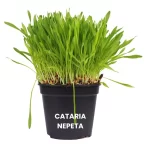


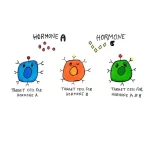

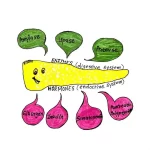




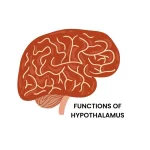

Leave a Reply